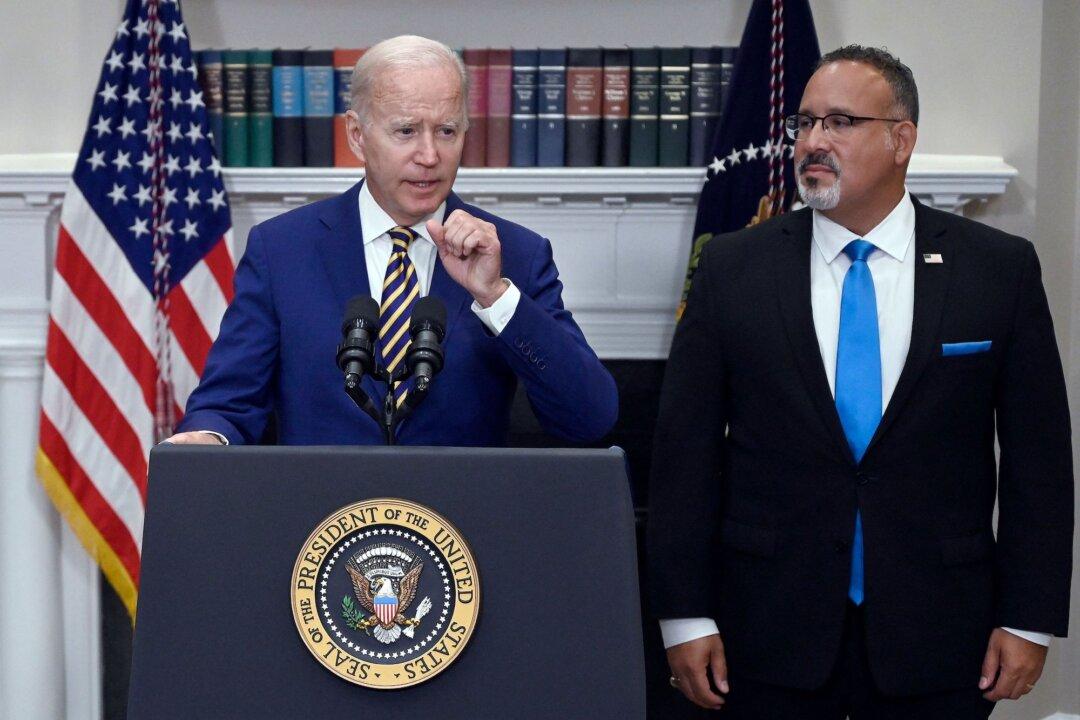The Biden administration’s abrupt change of course in its federal student loan debt “forgiveness” scheme is not going to help keep challengers out of court, said legal scholar GianCarlo Canaparo.
“It went wrong from the very start,” Canaparo, a senior legal fellow at conservative think tank Heritage Foundation, said in an interview with NTD News. “[President Joe Biden] has pinned this to the COVID-19 emergency, although he has just said we are no longer in a pandemic.”






